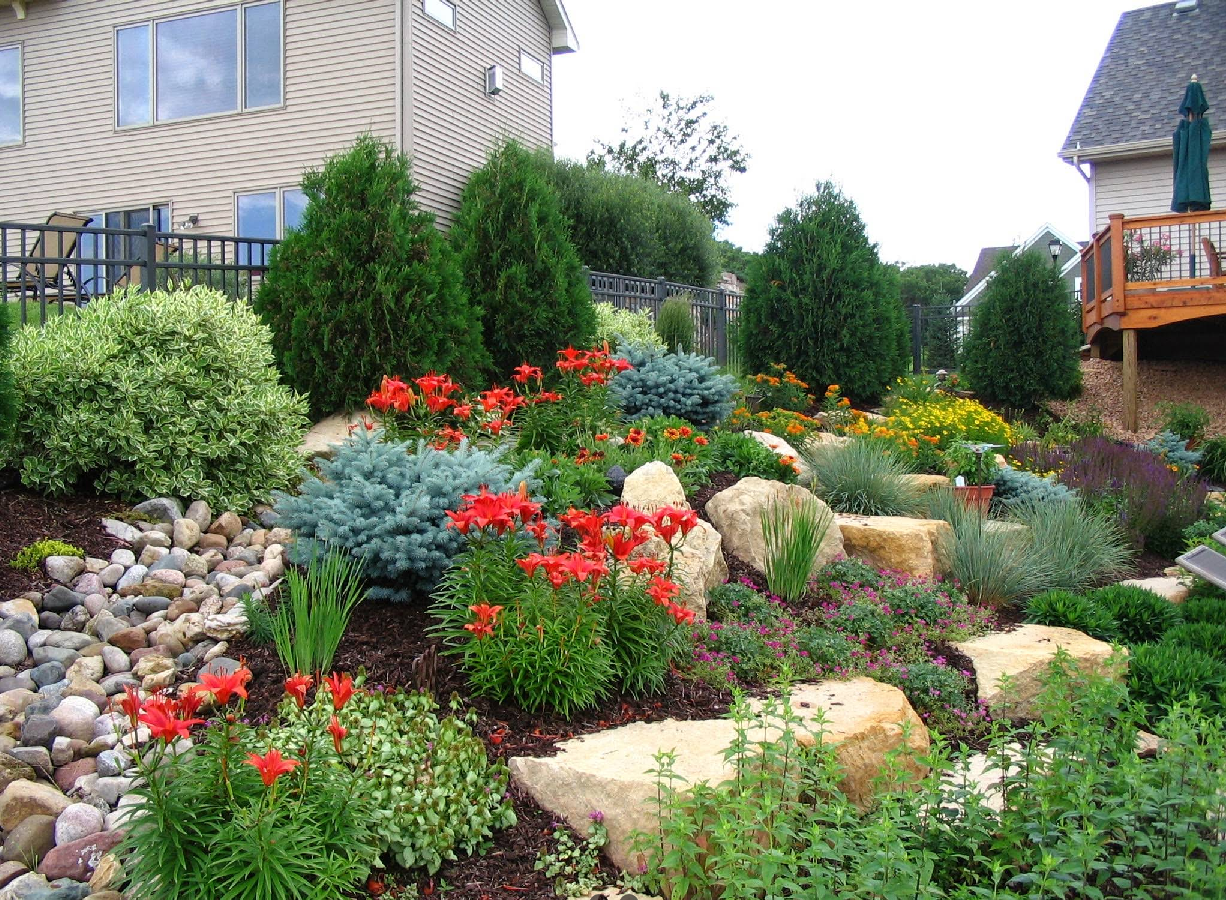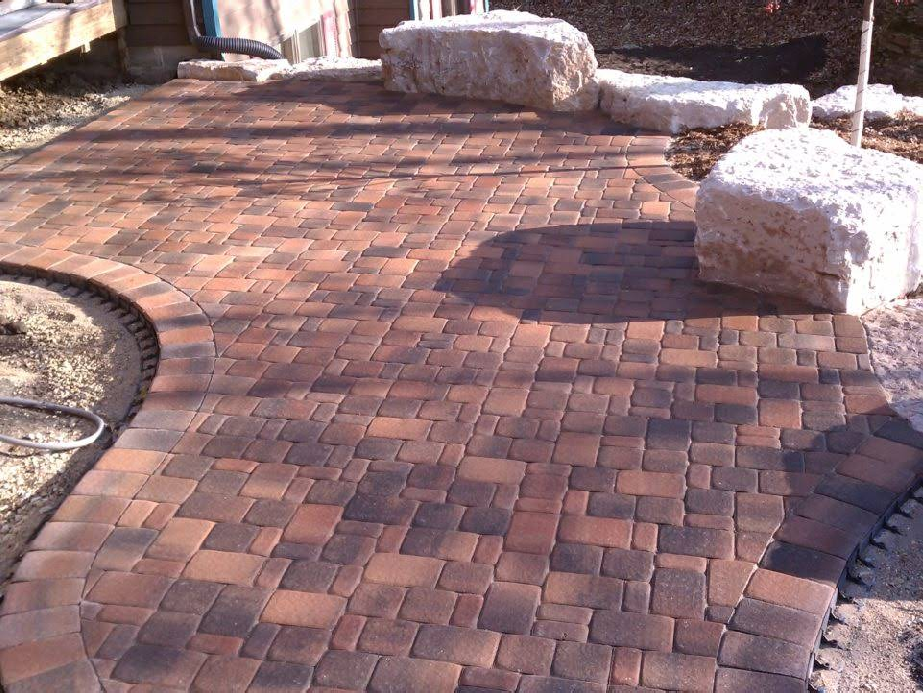Caring for Your Outdoor Investment
Keep Your Landscape Healthy and Beautiful Year-Round
A well-designed landscape is only as successful as its long-term care. At Landscape Gal, we build outdoor spaces that are durable and low-maintenance — but no landscape is truly “set it and forget it.” With proper seasonal attention and simple best practices, you can extend the beauty, function, and lifespan of your investment.
Whether you’ve had us install a stone patio, retaining wall, garden bed, or drainage system, this guide is designed to help you maintain your outdoor space in a way that protects your property and preserves our work.
These maintenance tips apply to homeowners throughout Northfield, Rice County, and the surrounding southern Twin Cities metro.
Why Landscape Maintenance Matters
Landscapes are living systems. Over time, even the most carefully planned spaces require adjustments due to weather, growth, and natural wear. Without care, plantings can become overgrown, drainage patterns can shift, and surfaces can deteriorate.
Key benefits of proactive maintenance include:
Protecting hardscape features like patios and walls
Encouraging healthy plant growth and seasonal color
Preventing soil erosion and drainage issues
Enhancing curb appeal and property value
Catching minor problems before they require major repairs
General Tips for All Landscapes
No matter the size or style of your landscape, these basic habits will support plant health and preserve structural elements.
Mulch Management
- Refresh mulch annually in early spring or fall
- Maintain a 2–3" layer around plant beds — not too thick ,not too thin
- Avoid “volcano mulching” around tree trunks, which causes rot
- Mulch helps with weed suppression and moisture retention
Weed and Edge Control
- Hand-pull weeds regularly — especially before they flower
- Install weed fabric only under rock and not in mulch zones.
- Mulch at the proper depth of 2–3 inches to naturally suppress weed growth.
Watering Wisely
- Water deeply but infrequently, encouraging deep root systems
- Early morning is the best time to water to reduce evaporation
- Avoid overhead watering on leaves to prevent mildew and disease
- Drip irrigation or soaker hoses are efficient for garden beds, but hand watering is essential to help new plants establish during the first season.
Fertilizing and Feeding
- Apply slow-release fertilizer in early spring as needed
- Know your plant types — some benefit from feeding, others don’t
- Avoid over-fertilizing perennials or natives
Hardscape & Structural Maintenance
While stone, boulders, and pavers are long-lasting materials, they benefit from annual checkups.
Patios & Walkways
- Refill joint sand on pavers if erosion occurs
- Inspect for settling or movement, especially after freeze-thaw cycles
- Clean with low-pressure water and a stiff brush — avoid power washers on stone
Retaining Walls
- Check for bowing, cracks, or signs of drainage failure
- Make sure drainage tile outlets and drainage paths stay clear.
- Remove vegetation from behind walls to reduce pressure buildup
Stone Steps and Outcroppings
- Inspect for slipping or shifting
- Re-set stones that have moved using proper base techniques
- Keep pathways free of leaf debris and ice in fall/winter
Planting Bed & Garden Care
Perennial Maintenance
- Cut back perennials in late fall or early spring depending on species
- Deadhead spent blooms to promote more flowering
- Divide overcrowded clumps every 3–5 years
- Leave some seed heads for winter wildlife interest
Shrubs and Small Trees
- Prune most deciduous shrubs in late fall or early spring, and prune evergreen shrubs in mid-summer.
- Shape early-spring flowering shrubs within a month after bloom time.
- Avoid shearing — use selective cuts for plant health
- Mulch around base but leave a gap at the trunk
Annual Color & Containers
- Replace annuals seasonally for fresh color
- Fertilize containers every 2–3 weeks during growing season
- Water daily during hot periods — pots dry out faster than beds
Drainage and Water Feature Upkeep
Drainage Zones
- Watch for pooling water after heavy rain — this could indicate settling
- Clear out rain gardens and swales of leaves or silt annually
- Re-grade mulch or soil as needed to maintain water flow paths
- Installing a floating heater in winter allows you to keep water in the pond and maintain oxygen exchange to keep koi fish alive all winter.
Water Features & Ponds
- Skim leaves and debris weekly
- Clean pumps and filters as needed
- Winterize in fall — remove delicate plants and stop pumps before freeze
- Refill slowly in spring to avoid shocking aquatic systems
Maintenance Helps Your Landscape Evolve
At Landscape Gal, we don’t just install — we educate. Our goal is to give you the confidence to care for your landscape year after year. Proper maintenance doesn’t mean spending hours every weekend — it means knowing when and how to act to keep things thriving.
We build every element — from gardens to stone — with the expectation that it will last. These care habits are simply the tools to help it do just that.
Contact Landscape Gal
Have questions about specific maintenance needs? Want a seasonal refresh or advice on plant care?
Reach out directly:
3343 Union Lake Trl, Northfield, MN 55057
Monday–Friday, 7:30am – 5:30pm



